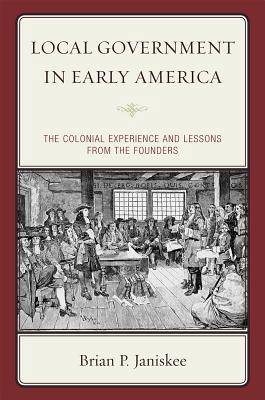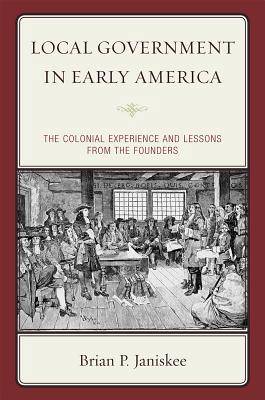
Bedankt voor het vertrouwen het afgelopen jaar! Om jou te bedanken bieden we GRATIS verzending (in België) aan op alles gedurende de hele maand januari.
- Afhalen na 1 uur in een winkel met voorraad
- In januari gratis thuislevering in België
- Ruim aanbod met 7 miljoen producten
Bedankt voor het vertrouwen het afgelopen jaar! Om jou te bedanken bieden we GRATIS verzending (in België) aan op alles gedurende de hele maand januari.
- Afhalen na 1 uur in een winkel met voorraad
- In januari gratis thuislevering in België
- Ruim aanbod met 7 miljoen producten
Zoeken
Local Government in Early America
The Colonial Experience and Lessons from the Founders
Brian P Janiskee
Hardcover | Engels
€ 155,95
+ 311 punten
Omschrijving
In Local Government in Early America, Brian P. Janiskee examines the origins of the "town hall meeting" and other iconic political institutions, whose origins lie in our colonial heritage. This work offers an overview of the structure of local politics in the colonial era, a detailed examination of the thoughts of key founders-such as John Adams and Thomas Jefferson-on local politics, and some thoughts on the continued role of local institutions as vital elements of the American political system.
Specificaties
Betrokkenen
- Auteur(s):
- Uitgeverij:
Inhoud
- Aantal bladzijden:
- 200
- Taal:
- Engels
Eigenschappen
- Productcode (EAN):
- 9781442201347
- Verschijningsdatum:
- 16/03/2010
- Uitvoering:
- Hardcover
- Formaat:
- Genaaid
- Afmetingen:
- 163 mm x 235 mm
- Gewicht:
- 449 g

Alleen bij Standaard Boekhandel
+ 311 punten op je klantenkaart van Standaard Boekhandel
Beoordelingen
We publiceren alleen reviews die voldoen aan de voorwaarden voor reviews. Bekijk onze voorwaarden voor reviews.









